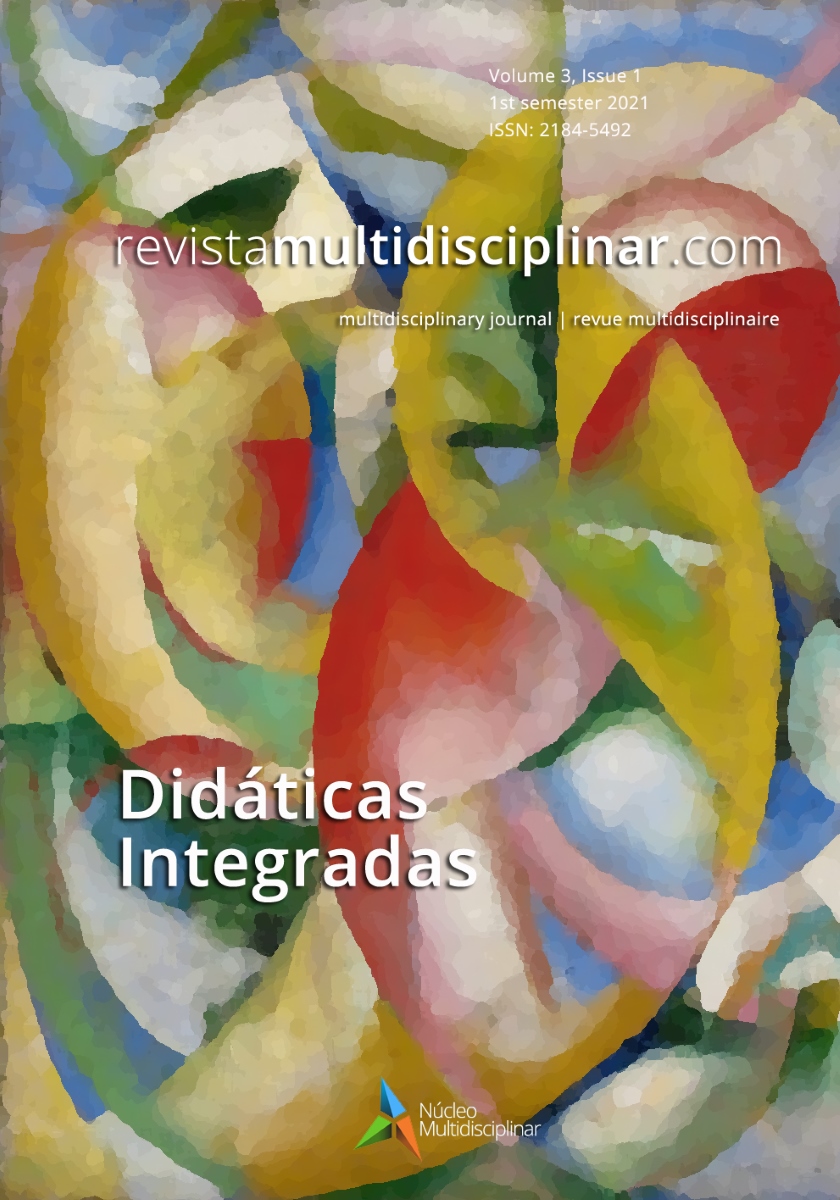Pedagogical dynamics in environmental education
The problem of bees
DOI:
https://doi.org/10.23882/DI2162Keywords:
bee, children's perceptions, environmental education, project methodologyAbstract
With this article we describe the pedagogical dynamics in a Primary School class, in which the environmental problem is related to the relevance of bees. Firstly, we accessed the students' perceptions about bees. Then, we proceeded to the implementation of the project work, properly speaking, with five interrelated activities: (1) the interview with a beekeeper; (2) the analysis of a news item; (3) the study of the biology of the bee and the Asian wasp; (4) debate and keywords (5) the collective poster in the form of "honeycombs". Finally, we access again the children's perceptions about bees, to understand the progression of these perceptions. The methodological approach is qualitative-phenomenological, based on the project methodology in the development of pedagogical dynamics. For data collection, we used children's drawings and texts written by the children and for data analysis we used Stephen Kellert's (1996) The results obtained show that there was a transformation in the way students perceive nature, of which we are also a part (Coutinho & Rocha, 2019).
References
Buss, C. S., & Mackedanz, L. F. (2017). O ensino através de projetos como metodologia ativa de ensino e de aprendizagem. Revista Thema, 14(3), 122-131. https://doi.org/10.15536/thema.14.2017.122-131.481
Coutinho, H., & Rocha, R. (2019). 'Desengaiolar': Identificar e (des)construir representações das interações de humanos com outros animais. RevistaMultidisciplinar, 1(1), 17-32, https://doi.org/10.23882/MJ1908
Câmara, A. C., Castro, S., Gil, H., Freitas, H., Proença, A., Teixeira, F., & ... Vieira, I. (2018). Referencial de Educação Ambiental para a Sustentabilidade para a Educação Pré-Escolar, o Ensino Básico e o Ensi-no Secundário. Lisboa: Ministério da Educação.
Carvalho, I. (1991). Ecologia, Desenvolvimento e Sociedade Civil - Revista de Administração Pública, 25(4), 4-11. http://bibliotecadigital.fgv.br/ojs/index.php/rap/article/view/8829
Cromarty, E. (2017). An educational historical narrative study of visualization in the progressive art pedagogy of Lowenfeld. Boston, Massachusetts: Northeasthern University - College of Professional Studies.
Figueira, L. P. (2020). Desenho infantil como forma de expressar emoções. Portalegre: Instituto Politécnico de Portalegre. Escola Superior de Educação e Ciências Sociais. http://hdl.handle.net/10400.26/32910
Kellert, S. R. (1996). The Value of Life: Biological Diversity and Human Society. Washington, DC: Island Press.
Kellert, S. (2002). Experience Nature: Affective, cognitive, evaluative development in children. In S. Kellert, & P. Kahn, Children and Nature: Psychological, sociocultural and evolutionary investigations (pp. 117-151). Londres: Massachusetts Institute of Technology.
Neves, J. (2011). O que é para ti um tubarão? Percepções das crianças sobre os tubarões em contexto (educação) informal de ciências. (Dissertação de mestrado). Faculdade de Ciência e Tecnologia. Univer-sidade do Algarve. http://hdl.handle.net/10400.1/2258
Neves, S. (2020). Perceção das crianças sobre a importância das abelhas no 1.º ciclo do ensino básico. Relatório da Prática de Ensino Supervisionada. (Dissertação de mestrado). Escola Superior de Educação e Comunicação, Universidade do Algarve. http://hdl.handle.net/10400.1/15170
Saraiva, M. (2020). Projeto SOS Planeta. RevistaMultidisciplinar, 2(2), 45-52. https://doi.org/10.23882/MJ2035
Downloads
Published
How to Cite
Issue
Section
License
Copyright (c) 2021 Susana Neves, Carla Dionísio Gonçalves, Rute Rocha

This work is licensed under a Creative Commons Attribution-NonCommercial 4.0 International License.









